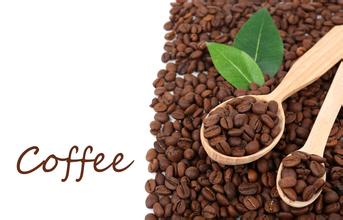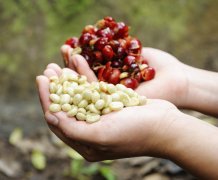Boutique Coffee Kopi Luwak Manor Kopi Luwak producing area Coffee beans
Civet Coffee (Kopi Luwak), native to Indonesia. It is one of the most expensive coffee in the world, with a price of several hundred US dollars per pound. It is extracted from the feces of the civet and processed. The civet eats the ripe coffee fruit and is excreted through the digestive system. After it is fermented through the stomach, the coffee produced has a special taste and has become a hot item in the international market.
Chinese name Coffee Coffee Foreign language name Kopi Luwak also known as the main ingredient of Kopi Luwak whether the coffee beans excreted after the civet food contain preservatives do not define the coffee beans excreted after the civet food
Catalogue
1 introduction
2 principle
3 Coffee sources
4 the course of development
5 production method
6 production skills
7 main features
▪ is expensive.
▪ has a unique flavor.
8 places of origin
9 Coffee brand
10 brewing mode
11 comments after drinking
12 professional terms
13 feeding process
▪ mode
▪ process
News related to ▪
Introduction editor
Kopi Luwak is made in Indonesia. In the early 18th century, the Dutch established coffee plantations in the Indonesian colonies of Sumatra and Java, and banned locals from picking and eating their own coffee fruits. Indonesian locals inadvertently found that civets love to eat these coffee fruits and will drain the beans intact when defecating.
Musk cats only choose the most ripe and sweetest coffee beans, which in itself is a natural screening. Second, locals find that these beans are fermented by the cat's stomach to produce coffee that tastes better than ordinary ones. Mellow and delicious Kopi Luwak has gradually become famous and become a hot product in the international market.
The market is flooded:
Artificial captivity
Civet is a nocturnal animal that lives in the jungle and eats very little. Coffee beans produced by wild civets are very rare. Only in captivity can more Kopi Luwak be obtained. Some unscrupulous traders keep the animals in small, dirty cages, forcing them to keep eating. They are on the verge of collapse, biting each other's companions, biting their legs, pulling blood, and dying one after another.
There are too many fakes
Eighty-five percent of Kopi Luwak on the market is fake, and many coffee companies label regular coffee as "cat shit" to bid up prices. Even if it comes from real cat shit, it is basically the product of industrial production, and the original ecology is almost impossible.
Quality
Coffee beans that artificially feed civets have not been screened and are not beans of high quality!
Drive a bad wind
Kopi Luwak has driven a bad atmosphere, elephant shit coffee, squirrel shit coffee, bird shit coffee have all come out, the means are as cruel. [1]
Principle editing
Indonesian coconut cat
Indonesian coconut cat
Kopi Luwak is produced by the feces of Indonesian coconut cats (a kind of civet) as raw materials, so it is called "Kopi Luwak". This kind of animal mainly feeds on coffee beans. After completing fermentation in the coconut cat's stomach, it destroys protein, produces short peptides and more free amino acids, reduces the bitterness of coffee, and then excretes feces as the main raw material. Because coffee beans cannot be digested, they are excreted and Kopi Luwak is made after washing and baking. Coffee critic Chris Rubin said, "the aroma of the wine is so rich and strong, and the coffee is incredibly rich, almost like syrup." Its thickness and chocolate taste, and lingering on the tongue for a long time, pure aftertaste. "
Coconut cats are omnivores. In addition to eating seeds, they also eat insects, snakes, birds, amphibians and reptiles, so the feces discharged by really wild coconut cats will be mixed with all kinds of substances. Local farmers in Indonesia catch coconut cats to raise them and feed coffee beans to make them. But after all, there are some differences between artificial cultivation and natural ones.
Musk cat coffee
Civet Coffee (5)
In the coffee industry, Kopi Luwak is widely regarded as a product with novelty as the selling point. "the consensus in the industry is that it tastes bad," said the American Special Coffee Association (Specialty Coffee Association of America,SCAA). SCAA quoted a coffee expert as saying: "obviously, the selling point of Kopi Luwak is its story, not its quality." Using the SCAA standard, Kopi Luwak scored two points lower than the lowest score for the other three types of coffee. It can be speculated that the processing of Kopi Luwak diluted the high-quality acidity and taste and made the taste more insipid. Of course, many people also seem to regard this insipid taste as the advantage of this kind of coffee. "
Tim Carman, a food columnist for the Washington Post, commented on Kopi Luwak sold in the United States and concluded that "it tastes like Folger coffee." It's like rotten, lifeless taste. It's like petrified dinosaur shit in bath water. I can't finish it. "
The civet likes to choose the most ripe, sweet, juicy coffee fruit in the coffee tree as food. The coffee fruit passes through its digestive system, and only the pulp on the outside of the fruit is digested, and the hard coffee beans are then excreted intact by the civet's digestive system.
In this way, in the process of digestion, the coffee beans have an unparalleled magical change, the flavor tends to be unique, the taste is particularly mellow, and the rich, round and sweet taste is also incomparable to other coffee beans. This is due to the fact that the civets' digestive system destroys the protein in the coffee beans, making the coffee much less bitter and increasing the round taste of the coffee beans.
Because wild civets are obviously better at selecting good coffee fruits, this kind of coffee has outstanding characteristics.
Coffee source editor
Muscat Coffee (Kopi Luwak), Kopi (Indonesian, coffee), Luwak refers to a kind of arboreal wild animal commonly known as "civet" in Indonesia.
In Sumatra, Indonesia, locals call civets Musang rather than the commonly used Luwak,Kopi Musang is civet coffee, commonly known as "Kopi Luwak". -- from "Coffee Fine Science"
Kopi Luwak, produced in Indonesia, is one of the most expensive coffee in the world. Indonesia grows a lot of coffee crops, including wild animals called civets, omnivores, pointed mouths and dark gray fur. The favorite food is fresh coffee beans, which are fermented and digested in the body and eventually excreted by cats. Feces are grains of coffee beans and become the most expensive feces in the world. Because the quantity is very rare, so the price is very expensive. Civets are found in Indo-China, India (northeast), Bangladesh, Bhutan, Sikkim, Nepal and Kashmir, but only Sumatran civets, or Indonesian civets, can produce Kopi Luwak.
Musk cat droppings
Musk cat droppings
After processing and baking, Kopi Luwak has become a luxury coffee drink and spread to luxury kingdoms around the world. Local coffee farmers, in pursuit of high profits, bring wild civets home to raise them so that they can produce more Kopi Luwak. However, the Kopi Luwak produced by breeding civets will be much worse in color and taste. Even so, the output of this kind of coffee is still very rare, and it is not affordable for all people who like coffee.
The coffee comes from the excrement of an animal called the civet (commonly known as the civet in Indonesia). Although it comes from smelly poop, it is full of sweetness and a burst of indescribable sweetness. This wild musk cat likes to eat fat and pulpy coffee fruits, but the hard hard nuts (raw beans) are indigestible and are excreted with feces. After being cleaned, they become Kopi Luwak coffee raw beans! So many people call it "cat shit" coffee. The Indonesians found that the coffee beans fermented by the civets' intestines and stomach are particularly thick and mellow, so they collect the civets' feces, sift out the coffee beans and brew them to drink. Because the yield is rare and the fermentation process is unique, the flavor is very different from that of ordinary coffee. Traditionally, coffee fruit is transparent.
Musk cat
Musk cat
After washing or sun treatment, the peel, pulp and sheep skin are removed, and finally the coffee beans are removed. However, Luwak uses the method of natural fermentation in the body to remove the coffee beans, so it has a special flavor.
It is said that coffee farmers in early Indonesia regarded civet cats that ate ripe coffee fruits as mortal enemies, but at some point someone began to think of picking coffee beans from the civet droppings to make coffee with unique flavor. Coffee experts everywhere have tried and were amazed. Since then, local farmers spend a lot of time collecting civet droppings in the forest every day during the coffee ripening season.

Important Notice :
前街咖啡 FrontStreet Coffee has moved to new addredd:
FrontStreet Coffee Address: 315,Donghua East Road,GuangZhou
Tel:020 38364473
- Prev

Boutique Coffee Kopi Luwak Origin Kopi Luwak Coffee beans
Civet Coffee (Kopi Luwak), native to Indonesia. It is one of the most expensive coffee in the world, with a price of several hundred dollars per pound. It is extracted from the feces of the civet and processed. The civet eats the ripe coffee fruit and is excreted through the digestive system. After it is fermented through the stomach, the coffee produced has a special taste and has become a grab in the international market.
- Next

Boutique coffee Salvador Apanecavron, Himalayan manor
El Salvador Apanecavron, Himalayan Manor country: El Salvador Manor: Tablon Divisadero Apaneca Finca Manor owner: Mauricio A Salaverria production area: Apaneca Variety: 95% Red bourbon 5% Iron truck treatment: washed planting altitude: 1525 meters Award ranking: Himalaya coe winner 2011 and 2013 Flavor: wine
Related
- Does Rose Summer choose Blue, Green or Red? Detailed explanation of Rose Summer Coffee plots and Classification in Panamanian Jade Manor
- What is the difference between the origin, producing area, processing plant, cooperative and manor of coffee beans?
- How fine does the espresso powder fit? how to grind the espresso?
- Sca coffee roasting degree color card coffee roasting degree 8 roasting color values what do you mean?
- The practice of lattes: how to make lattes at home
- Introduction to Indonesian Fine Coffee beans-- Java Coffee producing area of Indonesian Arabica Coffee
- How much will the flavor of light and medium roasted rose summer be expressed? What baking level is rose summer suitable for?
- Introduction to the characteristics of washing, sun-drying or wet-planing coffee commonly used in Mantenin, Indonesia
- Price characteristics of Arabica Coffee Bean Starbucks introduction to Manning Coffee Bean Taste producing area Variety Manor
- What is the authentic Yega flavor? What are the flavor characteristics of the really excellent Yejasuffi coffee beans?

